Colloquium Lecturers and Advisers
FALL 2020
Tuesday, September 8
First Day of Class - EPIIC Orientation
Lecturer: Professor Williams
Thursday, September 10
How and Why China is Important for the World
 Guest Lecturer: Professor Anthony Saich, Harvard Kennedy School
Guest Lecturer: Professor Anthony Saich, Harvard Kennedy School
Anthony Saich is the director of the Ash Center for Democratic Governance and Innovation and Daewoo Professor of International Affairs at the Kennedy School of Government at Harvard University, teaching courses on comparative political institutions, democratic governance, and transitional economies with a focus on China. In his capacity as Ash Center Director, Saich also serves as the director of the Rajawali Foundation Institute for Asia and the faculty chair of the China Programs, the Asia Energy Leaders Program and the Leadership Transformation in Indonesia Program, which provide training programs for national and local Chinese and Indonesian officials. Saich first visited China as a student in 1976 and continues to visit each year. Currently, he is a guest professor at the School of Public Policy and Management at Tsinghua University, China. He also advises a wide range of government, private, and nonprofit organizations on work in China and elsewhere in Asia. Saich is a trustee member of he National Committee on US-China Relations (2014-), AMC Entertainment Inc., the chair of the China Medical Board, and International Bridges to Justice. He is also the US Secretary-General of the China United States Strategic Philanthropy. He sits on the executive committees of the John King Fairbank Center for Chinese Studies, Council on Asia Studies, South Asia Initiative and the Asia Center, all at Harvard University. He serves as the Harvard representative of the Kennedy Memorial Trust and previously was the representative for the Ford Foundation’s China Office from 1994 to 1999. Prior to this, he was director of the Sinological Institute at Leiden University in the Netherlands. His current research focuses on politics and governance in post-Mao China, China’s urbanization and rural-urban inequality in China; and the interplay between state and society in Asia and the respective roles they play in the provision of public goods and services at the local level. His most recent books include Governance and Politics of China (Fourth Edition, 2015); Chinese Village, Global Market (2012); Providing Public Goods in Transitional China (2008); Revolutionary Discourse in Mao’s Republic (with David Apter, 1998); The Rise to Power of the Chinese Communist Party (1996); and China’s Science Policy in the 80s (1989); He has edited books on Political Governance in China, 2015, Philanthropy for Health in China (with Jennifer Ryan and Lincoln Chen, 2014), China's urbanization (with Shahid Yusuf, 2008), HIV/AIDS (with Joan Kaufman and Arthur Kleinman, 2006), and the Reform of China’s Financial Sector ( with Yasheng Huang and Edward Steinfeld., 2005). He holds a Ph.D. from the Faculty of Letters, University of Leiden, the Netherlands. He received his master’s degree in politics with special reference to China from the School of Oriental and African Studies, London University, and his bachelor’s degree in politics and geography from the University of Newcastle, UK. Away from the office, he enjoys time with his two children, movies, and soccer.
Tuesday, September 15
Alternative Perspectives on China’s Rise
 Guest Lecturer: Professor Michael Beckley, Tufts
Guest Lecturer: Professor Michael Beckley, Tufts
Michael Beckley is an associate professor of political science at Tufts University and a Jeane Kirkpatrick Visiting Scholar at the American Enterprise Institute. His research on U.S.-China relations has received awards from the American Political Science Association and the International Studies Association and been featured by numerous media including the Financial Times, Foreign Affairs, Foreign Policy, the New York Times, NPR, and the Washington Post. Previously, Michael worked for Harvard's Kennedy School of Government, the U.S. Department of Defense, the RAND Corporation, and the Carnegie Endowment for International Peace. He continues to advise offices within the U.S. Intelligence Community and U.S. Department of Defense. Michael holds a PhD in political science from Columbia University. His first book, Unrivaled: Why America Will Remain the World’s Sole Superpower, was published in 2018 by Cornell University Press.
Thursday, September 17
Continuity and Strategy in Contemporary Chinese Foreign Policy
 Guest Lecturer: Professor Robert G. Sutter, Elliott School George Washington University
Guest Lecturer: Professor Robert G. Sutter, Elliott School George Washington University
Robert Sutter is Professor of Practice of International Affairs at the Elliott School of George Washington University (2011-Present). He also served as Director of the School’s main undergraduate program involving over 2,000 students from 2013-2019. His earlier full-time position was Visiting Professor of Asian Studies at Georgetown University (2001-2011). A Ph.D. graduate in History and East Asian Languages from Harvard University, Sutter has published 22 books (four with multiple editions), over 300 articles and several hundred government reports dealing with contemporary East Asian and Pacific countries and their relations with the United States. His most recent book is The United States and Asia: Regional Dynamics and Twenty-first Century Relations Second Edition (Rowman & Littlefield, 2020). Sutter’s government career (1968-2001) saw service as senior specialist and director of the Foreign Affairs and National Defense Division of the Congressional Research Service, the National Intelligence Officer for East Asia and the Pacific at the US Government’s National Intelligence Council, the China division director at the Department of State’s Bureau of Intelligence and Research and professional staff member of the Senate Foreign Relations Committee.
Tuesday, September 22
A Window Seat on China-U.S. Relations
 Guest Lecturer: Glen Johnson, Former Deputy Assistant Secretary of State
Guest Lecturer: Glen Johnson, Former Deputy Assistant Secretary of State
Glen Johnson attended Lawrence University in Appleton, Wis., and began a nearly 30-year journalism career at the City News Bureau of Chicago. He returned to Massachusetts and reported for The Salem Evening News and Lowell Sun before joining The Associated Press in Boston. He transferred to the AP’s Washington Bureau and later became a Washington correspondent for The Boston Globe. He subsequently moved back to Massachusetts and was working there when he joined the State Department in 2013. While a reporter, he covered five presidential campaigns, eight nominating conventions, and visited all 48 continental states. He went to the last two - Alaska and Hawaii - during his four years working for the U.S. government as Deputy Assistant Secretary of State for Strategic Communications.
Thursday, September 24
Exam
Tuesday, September 29
Nationalism and Chinese Foreign Policy
 Guest Lecturer: Allen Carlson, Associate Professor in Cornell University’s Government Department
Guest Lecturer: Allen Carlson, Associate Professor in Cornell University’s Government Department
He was granted his PhD from Yale University’s Political Science Department. His undergraduate degree is from Colby College. In 2005 he was chosen to participate in the National Committee’s Public Intellectuals Program, and he currently serves as Director of Cornell’s China and Asia Pacific Studies program and advisor of its East Asia Program. Carlson is currently working on a project exploring the issue of nontraditional security in China’s emerging relationship with the rest of the international system.
Thursday October 1
China, Climate Change and the Environment
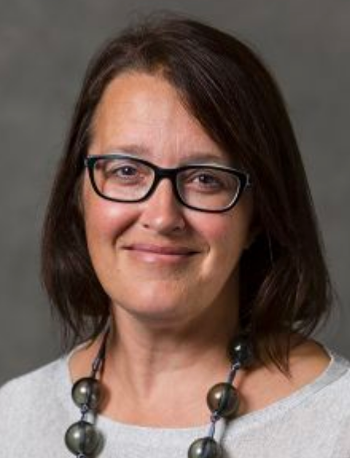 Guest Lecturer: Professor Kelly Sims Gallagher, The Fletcher School
Guest Lecturer: Professor Kelly Sims Gallagher, The Fletcher School
Kelly Sims Gallagher is professor of energy and environmental policy at The Fletcher School of Law and Diplomacy at Tufts University. She directs the Climate Policy Lab and the Center for International Environment and Resource Policy at Fletcher. From June 2014 – September 2015 she served in the Obama administration as a senior policy advisor in the White House Office of Science and Technology Policy, and as senior China advisor in the Special Envoy for Climate Change office at the U.S. State Department. Gallagher is a member of the board of the Belfer Center for Science and International Affairs at Harvard University. She is also a faculty affiliate with the Harvard University Center for Environment. She is a member of the Executive Committee of the Tyler Prize for Environmental Achievement and she also serves on the board of the Energy Foundation. Broadly, she focuses on energy and climate policy in both the United States and China. She specializes in how policy spurs the development and deployment of cleaner and more efficient energy technologies, domestically and internationally. A Truman Scholar, she has a MALD and Ph.D. in international affairs from The Fletcher School, and an A.B. from Occidental College. She speaks Spanish and basic Mandarin Chinese and is a member of the Council on Foreign Relations. She is the author of "China Shifts Gears: Automakers, Oil, Pollution, and Development," (The MIT Press 2006), editor of "Acting in Time on Energy Policy," (Brookings Institution Press 2009), "The Global Diffusion of Clean Energy Technologies: Lessons from China," (MIT Press 2014), and numerous academic articles and policy reports.
Tuesday, October 6
China and the Uighurs
 Guest Lecturer: Professor James Millward, Georgetown University
Guest Lecturer: Professor James Millward, Georgetown University
James Millward is Professor of Inter-societal History at the Walsh School of Foreign Service, Georgetown University, teaching Chinese, Central Asian and world history. He also teaches as invited professor in the Máster Oficial en Estudios de Asia Oriental at the University of Granada, Spain. His specialties include Qing empire; the silk road; Eurasian lutes and music in history; and historical and contemporary Xinjiang. He follows and comments on current issues regarding the Uyghurs and PRC ethnicity policy. Millward has served on the boards of the Association for Asian Studies (China and Inner Asia Council) and the Central Eurasian Studies Society and was president of the Central Eurasian Studies Society in 2010. He edits the ''Silk Roads'' series for University of Chicago Press. His publications include The Silk Road: A Very Short Introduction (2013), Eurasian Crossroads: A History of Xinjiang (2007), New Qing Imperial History: the Making of Inner Asian Empire at Qing Chengde (2004), and Beyond the Pass: Economy, Ethnicity and Empire in Qing Central Asia (1998). His most recent album, recorded with the band By & By, is Songs for this Old Heart. His articles and op-eds on contemporary China appear in The New York Times, The Washington Post, The Guardian, The Global Times, The Los Angeles Review of Books, The New York Review of Books and other media.
Thursday, October 8
China and Pandemics
 Guest Lecturer: Dr. Nahid Bhadelia, Boston University School of Medicine
Guest Lecturer: Dr. Nahid Bhadelia, Boston University School of Medicine
Dr. Nahid Bhadelia MD, MA is an infectious diseases physician, Associate Professor at the Boston University School of Medicine and the Medical Director of Special Pathogens Unit (SPU) at Boston Medical Center. The SPU provides medical backup to the maximum containment research (BSL4) conducted at the National Emerging Infectious Diseases Laboratory (NEIDL) at Boston University (BU). Her specialization is in infection control issues related to emerging pathogens and highly communicable infectious diseases. She serves on national and interagency groups focused on medical countermeasures, the intersection between public health preparedness, research and clinical care for emerging pathogens. She currently serves as the clinical lead for the Joint Mobile Emerging Disease Intervention Clinical Capability (JMEDICC) program which a joint US-Ugandan effort to create clinical research capacity to combat viral hemorrhagic fevers in Uganda at the border of Democratic Republic of Congo. Aside from her clinical training in infectious diseases, she has a master’s degree in international affairs from the Fletcher School of Law and Diplomacy and a background in health and human security with a focus on the impact of pandemics on macro level health indicators and community security. During the West African Ebola epidemic, she served as a clinician in several Ebola treatment units, working with World Health Organization and Partners in Health. She has served as a subject matter expert to US Centers for Disease Control and Prevention, Department of Defense, Global Fund to Fight AIDS, Tuberculosis and Malaria, and World Bank. Dr. Bhadelia is also an Adjunct Associate Professor at the Institute of Human Security at the Tufts Fletcher School of Law and Diplomacy, where she teaches a course on human security and emerging infectious diseases.
Tuesday, October 13
China and U.N. Peacekeeping
 Guest Lecturer: Professor Christoph Zuercher, University of Ottawa
Guest Lecturer: Professor Christoph Zuercher, University of Ottawa
Christoph Zuercher is a full professor at the Graduate School of Public and International Affairs at the University of Ottawa. He received his PhD from the University of Bern, Switzerland. Previous teaching and research appointments and experiences include the University of Konstanz, Germany, the Institut d' Etudes Politiques d'Aix-en-Provence, Stanford University, and Freie University Berlin. His research and teaching interests include conflict research, methods of conflict research, state-building and intervention, and international development. His regional focus is on the Former Soviet Union, especially on Russia, the Caucasus, and Central Asia, including Afghanistan. He has been a consultant/advisor for, among others, the German Federal Ministry for Economic Cooperation and Development, the German Federal Ministry of Defence, the Swiss Federal Department of Foreign Affaires, the GIZ and the World Bank. His recent practical work was mainly on evaluating the impact of development aid on violence.
Thursday, October 15
China’s Emergence as a Security and Technology Global Power
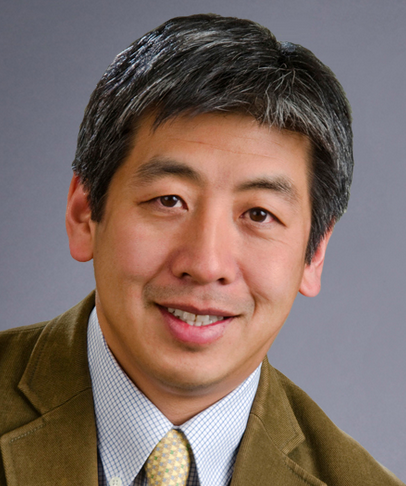 Guest Lecturer: Professor Tai Ming Cheung, UC San Diego
Guest Lecturer: Professor Tai Ming Cheung, UC San Diego
Tai Ming Cheung is a professor at the School of Global Policy and Strategy at UC SanDiego and director of the UC Institute on Global Conflict and Cooperation (IGCC). He is a longtime analyst of and leading expert on Chinese and East Asian defense and national security affairs, especially related to economic, industrial, technology and innovation issues. His book "Fortifying China: The Struggle to Build a Modern Defense Economy" was published in 2009, followed by “Forging China’s Military Might: A New Framework for Assessing Innovation,” which he edited. He was previously a correspondent at the Far Eastern Economic Review. As director of IGCC, Cheung leads the institute’s Study of Technology and Innovation, examining the evolving relationship between technology and national security in China. He also manages the institute’s Northeast Asia Cooperation Dialogue, bringing together senior foreign ministry, defense officials and academics from around the globe.
Tuesday October 20
China and the Global Economy
 Guest Lecturer: Dr. Julian Chang, Cambridge China Group
Guest Lecturer: Dr. Julian Chang, Cambridge China Group
Julian Chang is the Founding Partner and former President of the Cambridge China Group. He has been advising universities and companies in China on educational and training initiatives, as well as helping them with cross-border program development. Currently, Chang is assisting Tongji University's International School with its Contemporary China Research Center and lecturing on China's global presence. Additionally, he is teaching on-line tutorials on China's international relations and leadership for the future. In Shanghai, he advised PWC China on its young professionals training initiative, the IMC Octave group on its research and partnerships in active citizenship. He has been a consultant to Laureate International Universities, China, an Associate Dean at Tsinghua University's Schwarzman College, and until, 2014, was the Executive Director of the Rajawali Foundation Institute for Asia at the Ash Center for Democratic Governance and Innovation, Harvard Kennedy School. From 1996 to 2001 he held various teaching and managerial positions at Stanford University focusing on Asia and China. He took over the daily management of the Harvard Kennedy School's Asia programming in 2001; since then he has made several trips a year to China and Asia for program and business development, continuing to develop his many connections to well-placed members of the Chinese leadership. He first visited China in 1977 and returned to work there in the mid 1980s and speaks fluent Mandarin. He is founding President of the Chinese Globalization Association. He is currently a senior mentor to several education-based startups, a research fellow with the Beijing-based think tank, China Center for Globalization, was on the international advisory council of ECO. He also served as a senior advisor to AmeriChinaB2B, a web-based business to business matching service and to BDA LLC, an investment banking firm providing advice on international mergers and acquisitions, distressed properties, private placement, capital acquisition, and financial restructurings. His PhD dissertation was on political marketing in China, and he is currently leading an international academic team examining the range and variety of China's outbound investment activity, both state and private. He has contributed to the edited volumes China Rules: Globalization and Political Transformation; Economic Reform and Cross-Strait Relations: Taiwan and China in the WTO; and Presidential Politics in Taiwan: The Administration of Chen Shui-bian.
Thursday, October 22
From Tiananmen to the WTO: Why Did the US Help China’s Rise in the Early Post-Cold War Period?
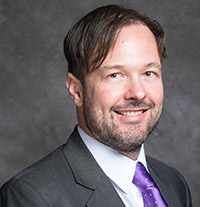 Guest Lecturer: Zoltan Feher, Doctoral Candidate, The Fletcher School of Law and Diplomacy, Tufts University; Hungarian Diplomat, 2002-15
Guest Lecturer: Zoltan Feher, Doctoral Candidate, The Fletcher School of Law and Diplomacy, Tufts University; Hungarian Diplomat, 2002-15
Zoltan Feher is a former diplomat from Hungary and a Ph.D. Candidate (ABD) in International Relations at The Fletcher School of Law and Diplomacy. He is currently a Research Fellow at Fletcher’s Center for Strategic Studies, and a World Politics and Statecraft Fellow with the Smith Richardson Foundation. He is a lawyer and a political scientist by training. He worked as a career diplomat between 2002 and 2015, serving as foreign policy analyst at the Hungarian embassy in Washington DC and most recently as Hungary’s Deputy Ambassador and Acting Ambassador in Turkey. He has taught International Relations at the Harvard Kennedy School, Harvard Summer School, Massachusetts Institute of Technology (MIT), The Fletcher School, and the two leading Hungarian universities. In 2015-2016, he was a Mason Fellow and a teaching assistant to Joseph Nye at the Harvard Kennedy School, where he earned a Master in Public Administration. In 2019-2020, he taught as an Adjunct Lecturer at the Political Science Department at Tufts University. He has been the recipient of the Kellner Scholarship (Bard College), Vali Scholarship (Harvard Kennedy School), as well as the Bradley Fellowship, Provost Fellowship, Graduate Competitive Initiative Fellowship, and Taussig Fellowship in Honor of William Martel (Tufts University/The Fletcher School), among others. He has studied with Robert Pfaltzgraff, Richard Shultz, Stephen Walt, Niall Ferguson, Richard Rosecrance, and Michael Ignatieff. His PhD dissertation focuses on U.S. strategy toward China amidst a changing global balance of power in the past fifty years.
Tuesday, October 27
China and Taiwan
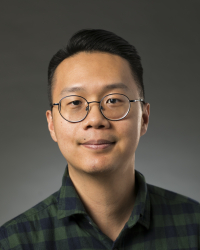 Guest Lecturer: Professor James Lin, University of Washington
Guest Lecturer: Professor James Lin, University of Washington
James Lin is an Assistant Professor at the Henry M. Jackson School of International Relations at Washington University. He is a historian of Taiwan and its interactions with the world in the 20th century. His research examines international agrarian development, beginning with rural reform and agricultural science in China and Taiwan from the early 20th century through the postwar era, then its subsequent re-imagining during Taiwanese development missions to Africa, Asia, and Latin America from the 1950s onward. James Lin is the first faculty to be hired as part of the Jackson School’s new Taiwan Studies Program, which is a joint project involving the UW, the Taiwan Government and an anonymous private donor.
Thursday, October 29
China and Tibet
 Guest Lecturer: Dr. Sophie Richardson, Human Rights Watch
Guest Lecturer: Dr. Sophie Richardson, Human Rights Watch
Sophie Richardson is the China director at Human Rights Watch. A graduate of the University of Virginia, the Hopkins-Nanjing Program, and Oberlin College, Dr. Richardson is the author of numerous articles on domestic Chinese political reform, democratization, and human rights in Cambodia, China, Indonesia, Hong Kong, the Philippines, and Vietnam. She has testified before the European Parliament and the US Senate and House of Representatives. She has provided commentary to the BBC, CNN, the Far Eastern Economic Review, Foreign Policy, National Public Radio, the New York Times, the Wall Street Journal, and the Washington Post. Dr. Richardson is the author of China, Cambodia, and the Five Principles of Peaceful Coexistence (Columbia University Press, Dec. 2009), an in-depth examination of China's foreign policy since 1954's Geneva Conference, including rare interviews with policy makers.
Tuesday, November 3
China and Japan
Guest Lecturer: tbc
Thursday, November 5
Second Exam
Tuesday, November 10
No Class-Wednesday’s Schedule
Thursday, November 12
China and the Korean Peninsula
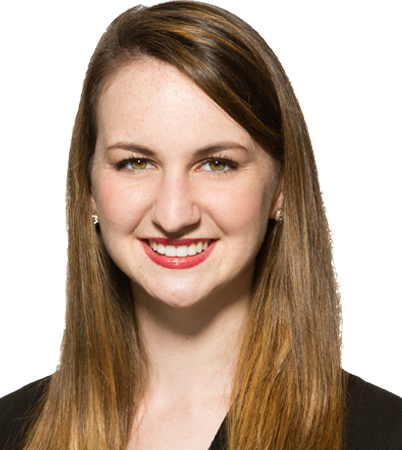 Guest Lecturer: Olivia Enos, The Heritage Foundation
Guest Lecturer: Olivia Enos, The Heritage Foundation
Olivia Enos, senior policy analyst in the Asian Studies Center at The Heritage Foundation, focuses on human rights and national security challenges in Asia. Her research spans a wide range of subjects, including democracy and governance challenges, human trafficking and human smuggling, religious freedom, refugee issues, and other social challenges in the region. Enos has published numerous papers on human rights in North Korea and China, threats to democracy in Southeast Asia, human trafficking in Asia, and reforming the U.S. refugee program, among other subjects. Enos has a bi-monthly column in Forbes where she writes on the intersection between human rights challenges and national security concerns.
Tuesday, November 17
Maritime Disputes: The South China Sea
 Guest Lecturer: Professor Rockford Weitz, The Fletcher School
Guest Lecturer: Professor Rockford Weitz, The Fletcher School
Rockford Weitz is professor of practice, entrepreneur coach, and director of the Maritime Studies Program at The Fletcher School of Law and Diplomacy at Tufts University. He also serves as president of the Institute for Global Maritime Studies Inc., a 501(c)(3) non-profit seeking practical solutions to global maritime challenges, and president & CEO at Rhumb Line International LLC, a consultancy providing strategic advice to entrepreneurs and startups.
In 2014, Rockford served as founding executive director at FinTech Sandbox Inc. From 2008 to 2013, he served as founding CEO at CargoMetrics, leading the effort to build a VC-backed financial technology business that started in his Cambridge apartment. Prior to co-founding CargoMetrics, he was a senior fellow at the Institute for Global Maritime Studies, a team leader of Fletcher's Abu Dhabi Project, a fellow at Fletcher's Maritime Studies Program, and a fellow at Fletcher's Jebsen Center for Counter-Terrorism Studies. He has taught courses in jurisprudence, maritime security, and global maritime affairs at The Fletcher School, and published op-eds in The New York Times, The Christian Science Monitor, and The Straits Times (Singapore), among others. Before co-founding Rhumb Line in 2005, he served as international counsel at Schweitzer Engineering Laboratories Inc., leading the effort to open 12 international subsidiaries and streamline global operations. He also worked at the U.S. trade representative, and co-founded and served as program director of the Borgenicht Peace Initiative, a social entrepreneurship venture in Bethlehem. Rockford earned a J.D. from Harvard Law School, M.A. and Ph.D. degrees from The Fletcher School, and a B.A. in International Relations: Political Economy from the College of William and Mary. He is a fellow in the U.S.-Japan Leadership Program, a member of the Fletcher School's Advancement Council, and a member of the Council on Foreign Relations.
Thursday, November 19
China-India Relations
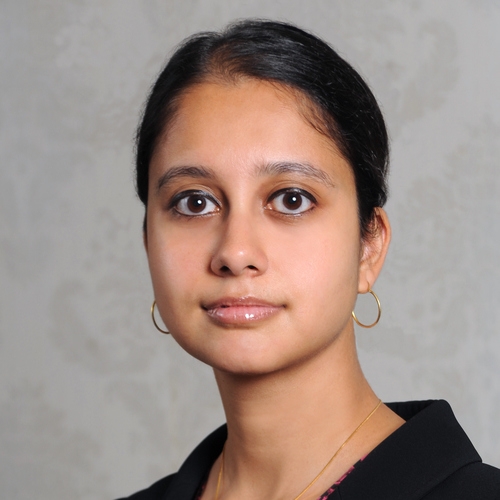 Professor Manjari Chatterjee Miller, Boston University
Professor Manjari Chatterjee Miller, Boston University
Manjari Chatterjee Miller is Associate Professor (with tenure) of International Relations at the Frederick S. Pardee School of Global Studies at Boston University, and a Research Associate at the Oxford School of Global and Area Studies, Oxford University. She works on foreign policy and security issues with a focus on South and East Asia. She specializes in the foreign policies of rising powers, India and China. Her book, Wronged by Empire: Post-Imperial Ideology and Foreign Policy in India and China (Stanford University Press, 2013) argues that the bitter history of colonialism affects the foreign policy behavior of India and China even today. She is currently working on rising powers, and the domestic ideational frameworks that explain their changing status. Her research has appeared in academic journals as well as non-academic outlets such as Foreign Affairs, the New York Times, The Diplomat, the Asia Society Policy Institute, The Hindu and the Christian Science Monitor. She has been a non-resident fellow at the Atlantic Council, a fellow at the Belfer Center of Science and International Affairs, Harvard University, visiting associate professor at the Lee Kuan Yew School of Public Policy (National University of Singapore), and a visiting scholar at the Chinese Academy of Social Sciences, Beijing, and the Crawford School of Public Policy, Australian National University, Canberra.
Tuesday, November 24
China and Southeast Asia
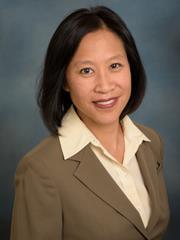 Guest Lecturer: Alice Ba, University of Delaware
Guest Lecturer: Alice Ba, University of Delaware
Alice D. Ba, PhD (University of Virginia, 2000) joined the Department in 2000. Her research considers the international relations of Southeast Asia with a special focus on ASEAN, regional cooperative regimes, and Southeast Asia’s major power relations (especially China and the United States). Current and ongoing projects consider the institutional dimensions of regional order (especially the roles played by ASEAN and China); security/safety regime frameworks in the Malacca Strait; and approaches to great power and conflict management in Southeast Asia. The author of (Re)Negotiating East and Southeast Asia: Region, Regionalism, and the Association of Southeast Asian Nations (Stanford 2009), she serves on several editorial boards, is a research associate of the ASEAN Studies Center at American University in Washington, DC, and has received US Fulbright awards for work in Beijing and Singapore. Professor Ba teaches courses on Southeast Asia's world relations and development, Chinese foreign policy, and comparative regionalisms. She also served as Director of Asian Studies at the University of Delaware from 2009-2014.
Thursday, November 26
No Class-Thanksgiving
Tuesday, December 1
Sino-Black Relations
 Guest Lecturer: Professor Keisha A. Brown, Tennessee State University
Guest Lecturer: Professor Keisha A. Brown, Tennessee State University
Dr. Keisha A. Brown joined Tennessee State University as an Assistant Professor of History in the Department of History, Political Science, Geography, and Africana Studies in the College of Liberal Arts in 2015. Keisha Brown received her B.A. from the University of Notre Dame with a double major in American Studies and Chinese and her Ph.D. from the University of Southern California. In addition to teaching World History II and Global Culture in History courses, Dr. Brown has also developed new courses related to her research. Professor Brown is a historian of modern China, with allied interests in race and ethnic studies, postcolonial theory and social and cultural history in modern East Asia. Specifically, Dr. Brown’s is interested in modern understandings of what she has termed Sino-Black relations.
Thursday, December 3
Mainland China and Hong Kong
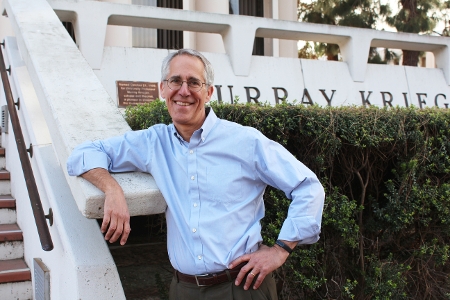 Guest Lecturer: Professor Jeffrey Wasserstrom, University of California, Irvine
Guest Lecturer: Professor Jeffrey Wasserstrom, University of California, Irvine
Jeffrey N. Wasserstrom is an American historian of modern China. He is Chancellor's Professor of History at the University of California, Irvine. Wasserstrom's research interests began with the role of student protest and have grown to include the social history of China and comparative social history. Wasserstrom received his B.A from the University of California, Santa Cruz in 1982. He received his M.A from Harvard University in 1984 and his Ph.D from the University of California, Berkeley in 1989. He is a specialist in modern Chinese history with a strong interest in connecting China's past to its present and placing both into global perspective. He has an enduring interest in protest and in cities and most of my books have been written with an eye toward engaging with not just historians but also scholars in other disciplines and also general readers.
Tuesday, December 8
China’s Relations with Russia
 Guest Lecturer: Professor Chris Miller, The Fletcher School
Guest Lecturer: Professor Chris Miller, The Fletcher School
Chris Miller is assistant professor of international history at The Fletcher School of Law and Diplomacy at Tufts University and co-director of the school's Russia and Eurasia Program. He is author of Putinomics: Power and Money in Resurgent Russia (2018) and The Struggle to Save the Soviet Economy (2016). He has previously served as the associate director of the Brady-Johnson Program in Grand Strategy at Yale, a lecturer at the New Economic School in Moscow, a visiting researcher at the Carnegie Moscow Center, a research associate at the Brookings Institution, and as a fellow at the German Marshall Fund's Transatlantic Academy. He received his Ph.D. and M.A. from Yale University and his B.A. in history from Harvard University.
Thursday, December 10
Relations with Europe
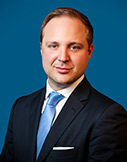 Guest Lecturer: Erik Brattberg, director of the Europe Program and a fellow at the Carnegie Endowment for International Peace in Washington
Guest Lecturer: Erik Brattberg, director of the Europe Program and a fellow at the Carnegie Endowment for International Peace in Washington
Erik Brattberg is an expert on European politics and security and transatlantic relations. His current research at Carnegie focuses on U.S. foreign policy toward the EU and NATO, transatlantic cooperation in an age of great power competition, European approaches toward AI and disinformation, and Europe’s relations with China and Asia. His numerous articles and commentary have appeared in the Washington Post, Financial Times, Foreign Policy, Politico, Atlantic Monthly, the National Interest, the American Interest, and the South China Morning Post. He is a frequent expert commentator to major news outlets, including ABC News, Al Jazeera, BBC News, Bloomberg, CNBC, CNN, Deutsche Welle, France 24, NBC News, and NPR. His research has been published in peer-reviewed journals and by institutions such as Johns Hopkins University, the Center for Strategic and International Studies, the German Council on Foreign Relations, and the European Policy Centre. He frequently lectures at universities and think tanks and has testified before the European Parliament’s Committee on Foreign Affairs and the U.S.-China Economic and Security Review Commission. He is a member of the steering committee of the Transatlantic Democracy Working Group. He holds a master of science in foreign service (MSFS) from Georgetown University and master’s and bachelor’s degrees in political science from Uppsala University.
Wednesday, December 16
Final Exam
SPRING 2021
Tuesday, February 2
First Class: Lecture
Thursday, February 4
Arctic 2030: The Emerging Role of China
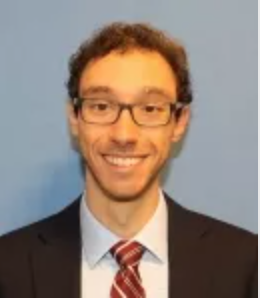 Guest Lecturer: Professor Benjamin Sacks, Pardee RAND Graduate School, an associate policy researcher at the RAND Corporation
Guest Lecturer: Professor Benjamin Sacks, Pardee RAND Graduate School, an associate policy researcher at the RAND Corporation
Benjamin Sacks is an associate policy researcher at the RAND Corporation and a professor of political geography at the Pardee RAND Graduate School for the 2020-2021 academic year. At RAND, Sacks employs mixed-method approaches to examine the history, political geography, public diplomacy, and networks of major power competition. Outside of RAND, he has published articles or chapters in Journal of Cold War Studies (forthcoming), History of Cartography (forthcoming), History of Military Cartography, Oxford Handbook on the History of Consumption, Companion to World History, and New England Quarterly. Sacks completed his postdoctoral fellowship at Harvard University’s Center for History and Economics, his Ph.D. and M.A. at Princeton University, and his B.A. from Tufts University. He is a permanent elected fellow of the Royal Geographical Society and a 2009 Beinecke Scholar.
Tuesday, February 9
An American in Beijing in the early 1980s
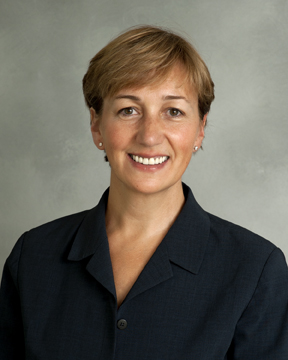 Guest Lecturer: Sara Judge, Vice President for Development at Tufts
Guest Lecturer: Sara Judge, Vice President for Development at Tufts
Sara Judge is Vice President for Development at Tufts where she provides leadership, guidance and mentorship to the fundraising and campaign management teams and is a key strategic partner in leading fundraising efforts across the University. Prior to joining Tufts in June 2020, Sara served as deputy vice president of development at Princeton where she managed the annual giving, leadership gifts, gift planning, strategic donor engagement and international fundraising teams. Sara previously served as president of China Institute in America, the oldest U.S.-China organization in the country, and as global director at Avenues: The World School, managing operations in China. She also served as director of Asia for AFS Intercultural Programs. After graduating from Princeton with a degree in East Asian Studies/Chinese, Sara set off for China where she pursued postgraduate studies at Peking University and worked at a consulting firm for four years.
Thursday, February 11
Symposium Prep
Tuesday, February 16
No Class, Monday’s Schedule
Thursday, February 18
Symposium Prep
Tuesday, February 23
China’s Tributary System
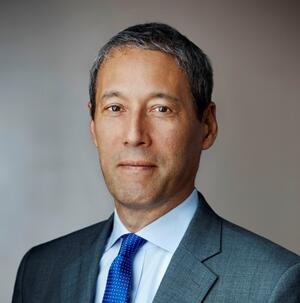 Guest Lecturer: Professor David C. Kang, University of Southern California
Guest Lecturer: Professor David C. Kang, University of Southern California
David C. Kang is Maria Crutcher Professor in International Relations, Business and East Asian Languages and Cultures at the University of Southern California, with appointments in both the School of International Relations and the Marshall School of Business. At USC he is also director of the Korean Studies Institute. Kang’s latest book is American Grand Strategy and East Asian Security in the 21st Century (Cambridge University Press, 2017). He is also author of East Asia Before the West: Five Centuries of Trade and Tribute (Columbia University Press, 2010); China Rising: Peace, Power, and Order in East Asia (Columbia University Press, 2007); Crony Capitalism: Corruption and Development in South Korea and the Philippines (Cambridge University Press, 2002); and Nuclear North Korea: A Debate on Engagement Strategies, co-authored with Victor Cha (Columbia University Press, 2003). Kang has published numerous scholarly articles in journals such as International Organization and International Security, and his co-authored article “Testing Balance of Power Theory in World History” was awarded “Best article, 2007-2009,” by the European Journal of International Relations. Kang has also written opinion pieces in the New York Times, the Financial Times, the Washington Post, and the Los Angeles Times, as well as writing a monthly column for the Joongang Ilbo in Korean. He received an A.B. with honors from Stanford University and his Ph.D. from Berkeley.
Thursday, February 25
Symposium Prep
Tuesday, March 2
Religion in China
 Guest Lecturer: Professor Richard Madsen, University of California, San Diego
Guest Lecturer: Professor Richard Madsen, University of California, San Diego
Richard Madsen is a distinguished Professor of Sociology the University of California, San Diego and was a co-director of a Ford Foundation project to help revive the academic discipline of sociology in China. He is the director of the Fudan-UC Center on Contemporary China and is serving as the acting provost of Eleanor Roosevelt College for the 2014-15 academic year. He is the author of 12 books on Chinese culture, United States society, U.S.-China relations and international relations, including the landmark village studies “Chen Village under Mao and Deng” and its sequel “Chen Village: Revolution to Globalization.” His 1995 book “Habits of the Heart” won the Los Angeles Times Book Award and was nominated for the Pulitzer Prize, while 1984’s “Morality and Power in a Chinese Village” won the C. Wright Mills Award. His most recent book is “Democracy’s Dharma: Religious Renaissance and Political Development in Taiwan.” Called “one of the modern-day founders of the study of Chinese religion,” Madsen is currently working on a book about happiness in China, which he describes as an exploration on searching for a good life in China in an age of anxiety, tapping into people’s sense of meaning.
Thursday, March 4
Symposium Prep
Tuesday, March 9
China and the Cold War
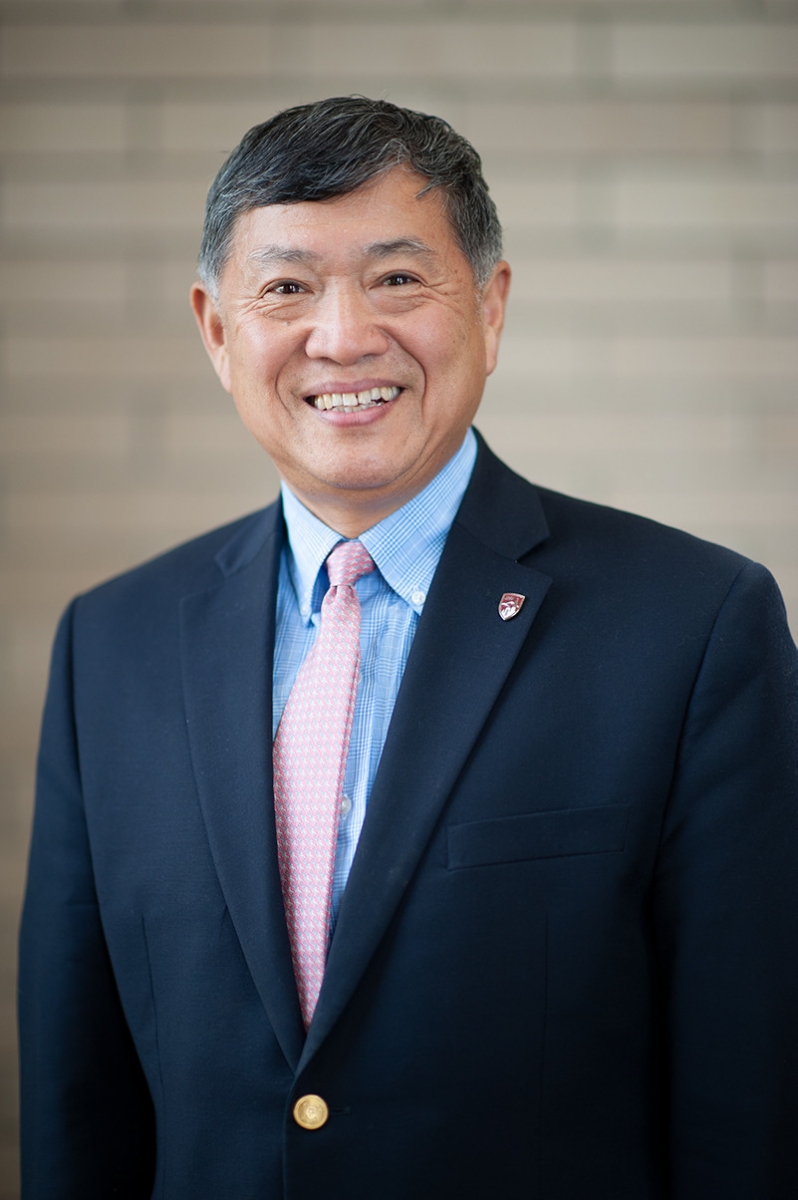 Guest Lecturer: Professor Suisheng Zhao, University of California, San Diego
Guest Lecturer: Professor Suisheng Zhao, University of California, San Diego
Suisheng Zhao is Professor and Director of the Center for China-US Cooperation at Josef Korbel School of International Studies, University of Denver. A founding editor of the Journal of Contemporary China, he is member of the Board of Governors of the US Committee of the Council for Security Cooperation in the Asia Pacific, a member of National Committee on US-China Relations, a Research Associate at the Fairbanks Center for East Asian Research in Harvard University, and a honorary jianzhi professor at Beijing University, Renmin University, China University of International Relations, Fudan University and Shanghai foreign Studies University. A Campbell National Fellow at Hoover Institution of Stanford University, he was Associate Professor of Political Science and International Studies at Washington College in Maryland, Associate Professor of Government and East Asian Politics at Colby College in Maine and visiting assistant professor at the Graduate School of International Relations and Pacific Studies (IR/PS) at University of California-San Diego. He received his Ph.D. degree in political science from the University of California-San Diego, M.A. degree in Sociology from the University of Missouri and BA and M.A. degrees in economics from Peking University. He is the author and editor of more than ten books, including: China and East Asian Regionalism: Economic and Security Cooperation and Institution-Building (Routledge 2012), In Search of China’s Development Model: Beyond the Beijing Consensus, (Routledge 2011), Village Elections in China (Routledge, 2010), China and the United States, Cooperation and Competition in Northeast Asia (Palgrave/Macmillion, 2008), China-US Relations Transformed: Perspectives and Strategic Interactions (Routledge, 2008), Debating Political Reform in China: Rule of Law versus Democratization (M. E. Sharpe, 2006), A Nation-State by Construction: Dynamics of Modern Chinese Nationalism (Stanford University Press, 2004), Chinese Foreign Policy: Pragmatism and Strategic Behavior (M. E. Sharpe, 2003), China and Democracy: Reconsidering the Prospects for a Democratic China (Routledge, 2000), Across the Taiwan Strait: Mainland China, Taiwan, and the Crisis of 1995-96 (Routledge, 1999). His articles have appeared in Political Science Quarterly, The Wilson Quarterly, Washington Quarterly, International Politik, The Hague Journal of Democracy, European Financial Review, The China Quarterly, World Affairs, Asian Survey, Asian Affairs, Journal of Democracy, Pacific Affairs, Communism and Post-Communism Studies, Problems of Post-Communism, and elsewhere.
Thursday, March 11
Symposium Prep
Tuesday, March 16
TILIP Prep
Thursday, March 18
Symposium Prep
Friday-Saturday, March 19-20
Symposium
Tuesday, March 23
Symposium Rev or Lecture
Thursday, March 25
Inquiry Prep
Tuesday, March 30
Sino-American Rapprochement during the Cold War
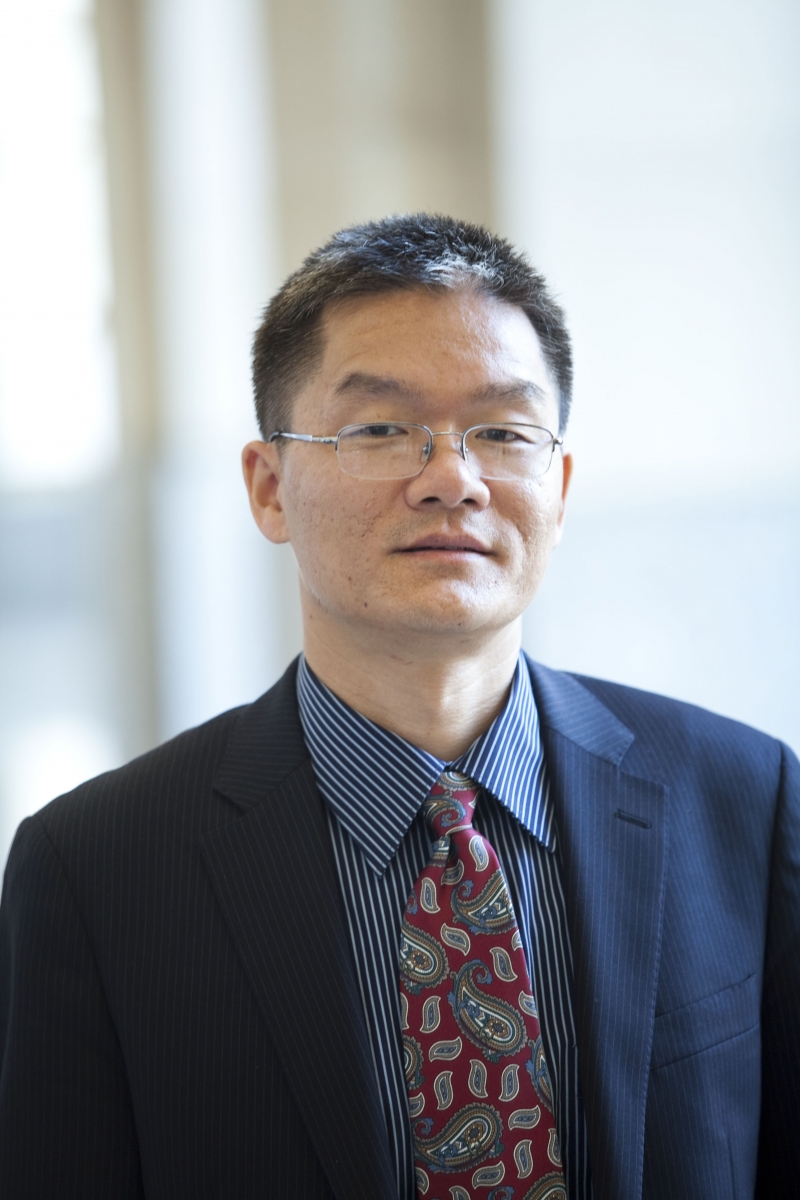 Guest Lecturer: Professor Yafeng Xia, Long Island University, New York
Guest Lecturer: Professor Yafeng Xia, Long Island University, New York
Professor Yafeng Xia is Professor of History at Long Island University in New York and Senior Research Fellow, Institute for Studies of China’s Neighboring Countries and Regions at East China Normal University in Shanghai. A former Wilson Center fellow and public policy scholar, he is the author of Negotiating with the Enemy: U.S.-China Talks during the Cold War, 1949-72 (2006), and co-author of Mao and the Sino-Soviet Partnership, 1945-1959: A New History, with Zhihua Shen (2015), A Misunderstood Friendship: Mao Zedong, Kim Il-sung, and Sino-North Korean Relations, 1949–1976, with Zhihua Shen (2018), and Mao and the Sino–Soviet Split, 1959-1973: A New History, with Danhui Li (2018).
Thursday, April 1
Inquiry Prep
Tuesday, April 6
Inquiry Prep
Thursday, April 8
Inquiry
Friday-Saturday, April 9-10
Inquiry
Tuesday, April 13
China and Latin America
 Guest Lecturer: Professor Carol Wise, the School of IR at the University of Southern California
Guest Lecturer: Professor Carol Wise, the School of IR at the University of Southern California
Carol Wise joined the School of International Relations at the University of Southern California in 2002 after spending eight years on the Faculty at Johns Hopkins University's School of Advanced International Studies in Washington, DC. She specializes in international political economy and development, with an emphasis on Latin America and Pacific Asia. She has written widely on trade integration, exchange rate crises, institutional reform, and the political economy of market restructuring in the region. Wise just completed a book-length project---Dragonomics: How Latin America is Maximizing (or Missing Out) on China's International Development Strategy (Yale University Press, 2020)---which analyzes the rapid and remarkable ties that have developed between China and Latin America since the 1990s. Her study approaches this phenomenon from three main angles: the relative rise of China in the global economy such that it has now replaced the U.S. as the most important trading partner for an increasing number of countries in Latin America; the more heterodox and flexible approach to economic policy management that increased relations with China has instilled in its main Latin American partners; and, the political implications of the growing presence of a "new" hegemon in the Western Hemisphere, one that has resisted the longstanding U.S. notion that liberal capitalist democracy is the only acceptable form of governance. Wise’s most recent publications include The Political Economy of China-Latin America Relations in the New Millennium(co-edited with Margaret Myers, Routledge, 2016); "Playing both Side of the Pacific: Latin America's Free Trade Agreements with China," Pacific Affairs (2016); and, "Conceptualizing China-Latin America Relations in the 21st Century," The Pacific Review (2018). Prof. Wise held the Fulbright-Masaryk University distinguished Chair, Czech Republic, in 2019.
Thursday, April 15
Red China Blues
Lecturer: Professor Williams
Tuesday, April 20
No class, Monday schedule
Thursday, April 22
China-Africa Relations
 Guest speaker: Professor Lina Benabdallah
Guest speaker: Professor Lina Benabdallah
Lina Benabdallah is assistant professor of Politics and International Affairs at Wake Forest University. Her current book project examines China’s multilateral foreign policy in continental Africa and seeks to theorize the power dynamics within the seemingly equal Global South diplomatic relations. Her fieldwork research areas include China, Ethiopia, and Kenya. At Wake Forest she teaches courses in international relations, African Studies, and international studies.
Tuesday, April 27
Economic Statecraft and China’s Influence
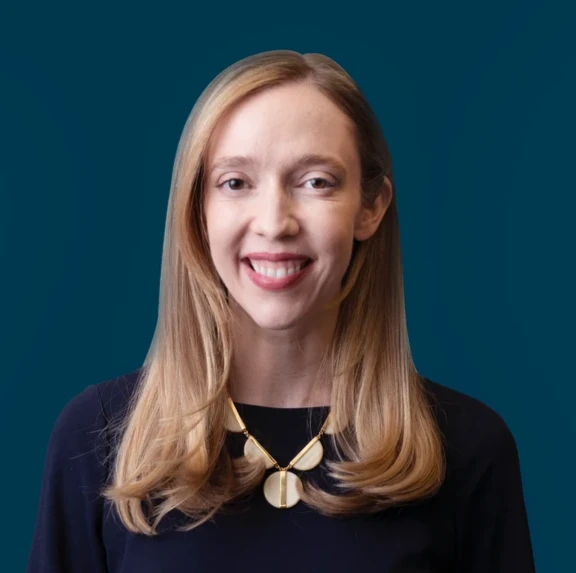 Guest speaker: Bethany Allen-Ebrahimian, China reporter at Axios
Guest speaker: Bethany Allen-Ebrahimian, China reporter at Axios
Bethany Allen-Ebrahimian is the China reporter at Axios, where she writes high-impact investigations, exclusives, and analysis about China, with a focus on China's impact in the United States and abroad. She is also writing a book about China for HarperCollins, forthcoming in 2022. Before joining Axios, she served as the lead reporter for the International Consortium of Investigative Journalists' China Cables project, a major leak of classified Chinese government documents revealing the inner workings of mass internment camps in Xinjiang. For her work on the China Cables project, she received the Robert D. G. Lewis Watchdog Award, the top prize awarded annually by the Society of Professional Journalists DC Dateline Awards, as well as the Investigative Journalism prize in the online category. The China Cables project was also a finalist for the Batten Medal for Courage in Journalism.
Thursday, April 29
Presentations on Research Papers
Tuesday, May 4
Presentations on Research Papers
Monday, May 10
Research Papers Due
